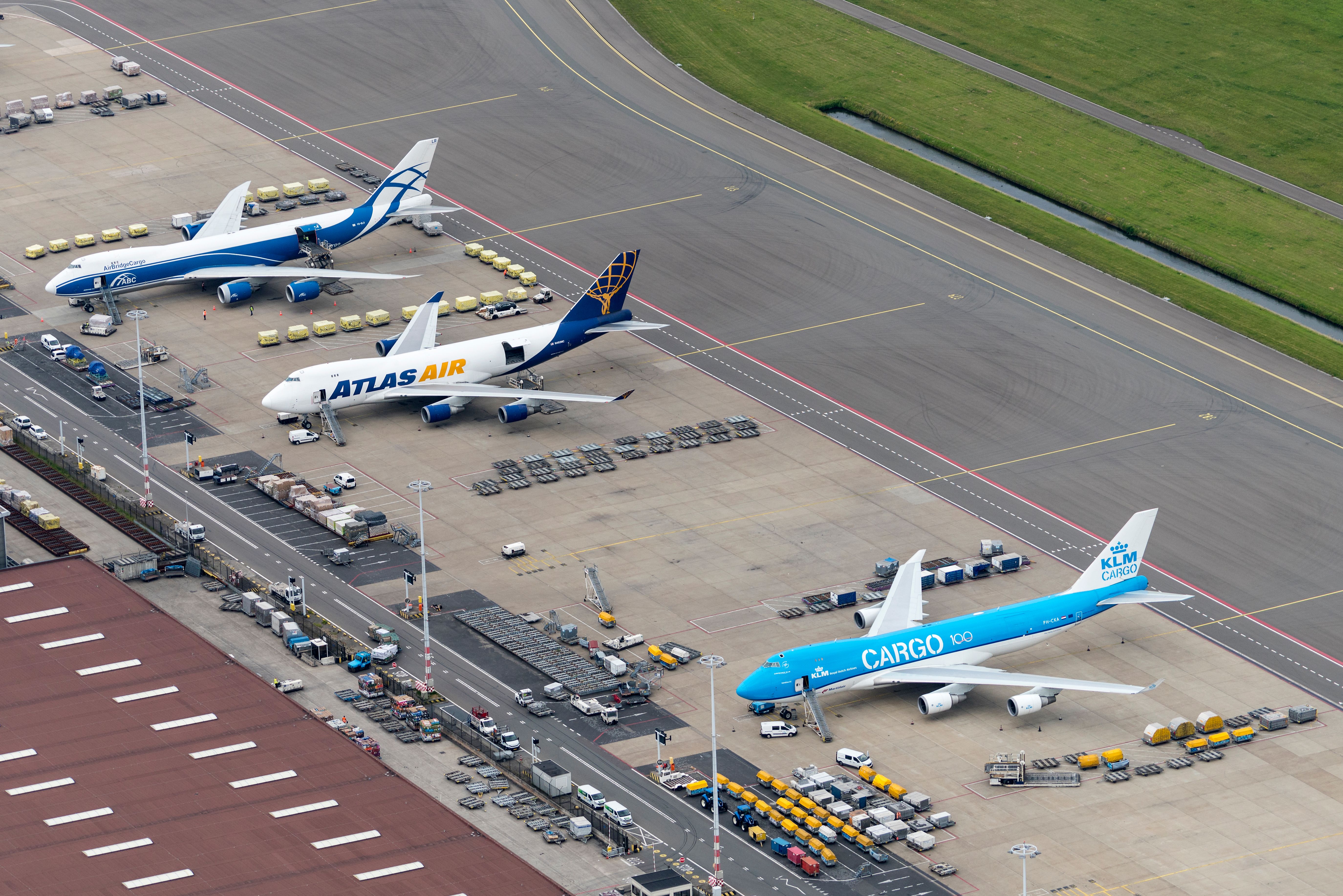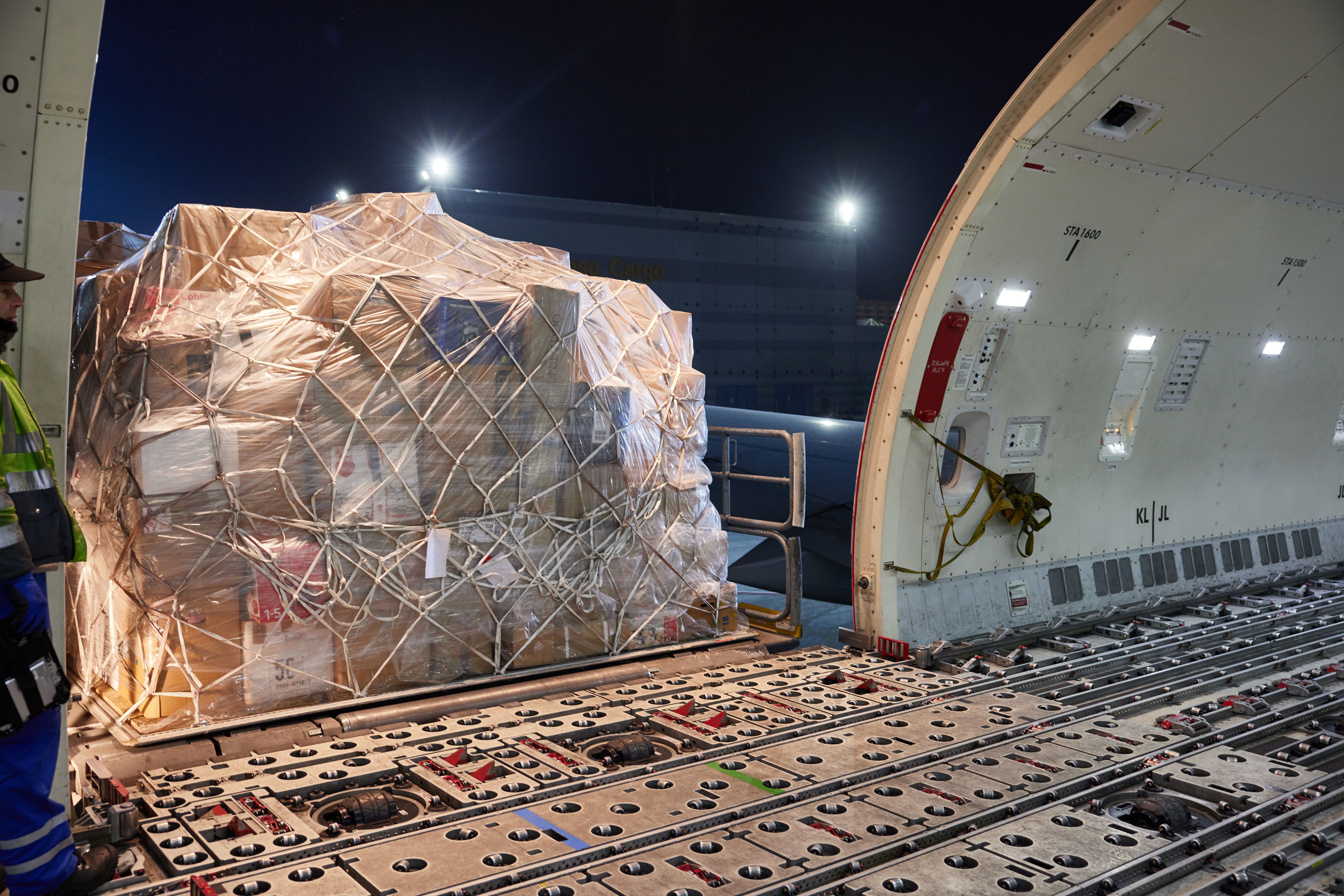Although air cargo boomed during the initial pandemic period, last year saw the supply of air cargo worldwide significantly declining from its sudden peak. In Europe, the depreciation between the previous year's levels and 2021's was approximately 5%, as the region suffered a direct result of the war in Ukraine and ongoing disruptions to the supply chain.
As expected with the decline in air cargo traffic, several airports across the European region suffered severe contractions in their freight volumes, although a small handful, somewhat unexpectedly, saw significant improvements. Here are the top five airports in Europe for air freight traffic in 2022.
5 Istanbul Airport
Coming in fifth place is Istanbul Airport in Turkey, the busiest airport in Europe last year when it handled approximately 64.5 million passengers. But besides being filled with passengers, the international airport has also been handling significant volumes of air cargo.
Last year, Istanbul Airport handled approximately 1.43 million tons of freight, signaling a massive 88% jump from figures in 2021. The main contributing factor behind the substantial increase is Turkish Cargo having moved its freighter operations from Ataturk Airport to Istanbul Airport instead.
The bigger airport is home to the airline's new cargo hub, known as SMARTIST. This currently takes us approximately 340,000 square meters. It features augmented reality, automatic storage systems, and unmanned ground vehicles and is planned to have an annual capacity of up to four million tons of air cargo.
4 Amsterdam Schiphol Airport
Although Amsterdam's Schiphol Airport had quite a rocky, yet overall successful 2022 in terms of passenger numbers, the airport's relationship with air cargo wasn't as great. Compared to the 1.66 million tons handled in 2021, Schiphol Airport only handled 1.44 million tons last year, signifying a decrease of about 14%.
And there were only 18,340 cargo-only flights operated to and from Schiphol Airport last year, a further decrease of about 24% compared to the 23,996 cargo-only flights operated in 2021. It's hard to say if the airport's cargo operations will improve this year, as the primary focus seems to be slot decisions and potential limitations to overall growth.
3 Leipzig-Halle Airport
In the middle of the rankings is Leipzig-Halle Airport, which handled approximately 1.51 million tons of air freight last year, an estimated 5.1% decline from 2021. The airport's freight capacity mostly suffered from the general economic slowdown and the strict restrictions surrounding the highly-significant Chinese market.
This year is likely to see the airport's cargo numbers improve, as China has partially reopened its borders. The airport recently opened the second phase of construction for a new air cargo handling hall last November. GEORGI Handling is expected to operate this new hall this spring and will work in partnership with DHL.
Want answers to more key questions in aviation? Check out the rest of our guides here.
2 Paris Charles de Gaulle Airport
Despite the continuing declining trend, Paris Charles de Gaulle Airport still ranks in second place as it handled an estimated 1.89 million tons of freight last year. Compared to the rest of the airports in this top five list, the airport has the smallest contraction from 2021 levels, at just 3%.
Like Leipzig-Halle Airport, Paris Charles de Gaulle Airport expects an improved year for air cargo operations since China has reopened. Cargo carriers such as CMA CGM Air Cargo and Worldwide Flight services, to name a few, have been ramping up freight services between the French airport and vital markets worldwide.
1 Frankfurt Airport
Finally, ranking as the top European airport for freight traffic last year is none other than Frankfurt Airport - often known as Europe's busiest cargo airport. Operating true to its title and ranking, the airport handled approximately 2.0 million tons of cargo.
However, it would be pretty ironic to learn that despite handling so much cargo, last year's number was a massive 13.3% decline from 2021 and an estimated 5.6% decline from 2019. As with every other airport within the region, Frankfurt Airport was heavily affected by airspace restrictions, the closure of China, and the overall economic slowdown due to inflation.
With the air cargo industry seeing more of an upward trend again this year, Frankfurt Airport is optimistic about the growth of its cargo operations. Although it did not see an increase in cargo volumes during the run-up to the Lunar New Year, the airport is sure that capacity will increase with demand set to grow throughout the year.




